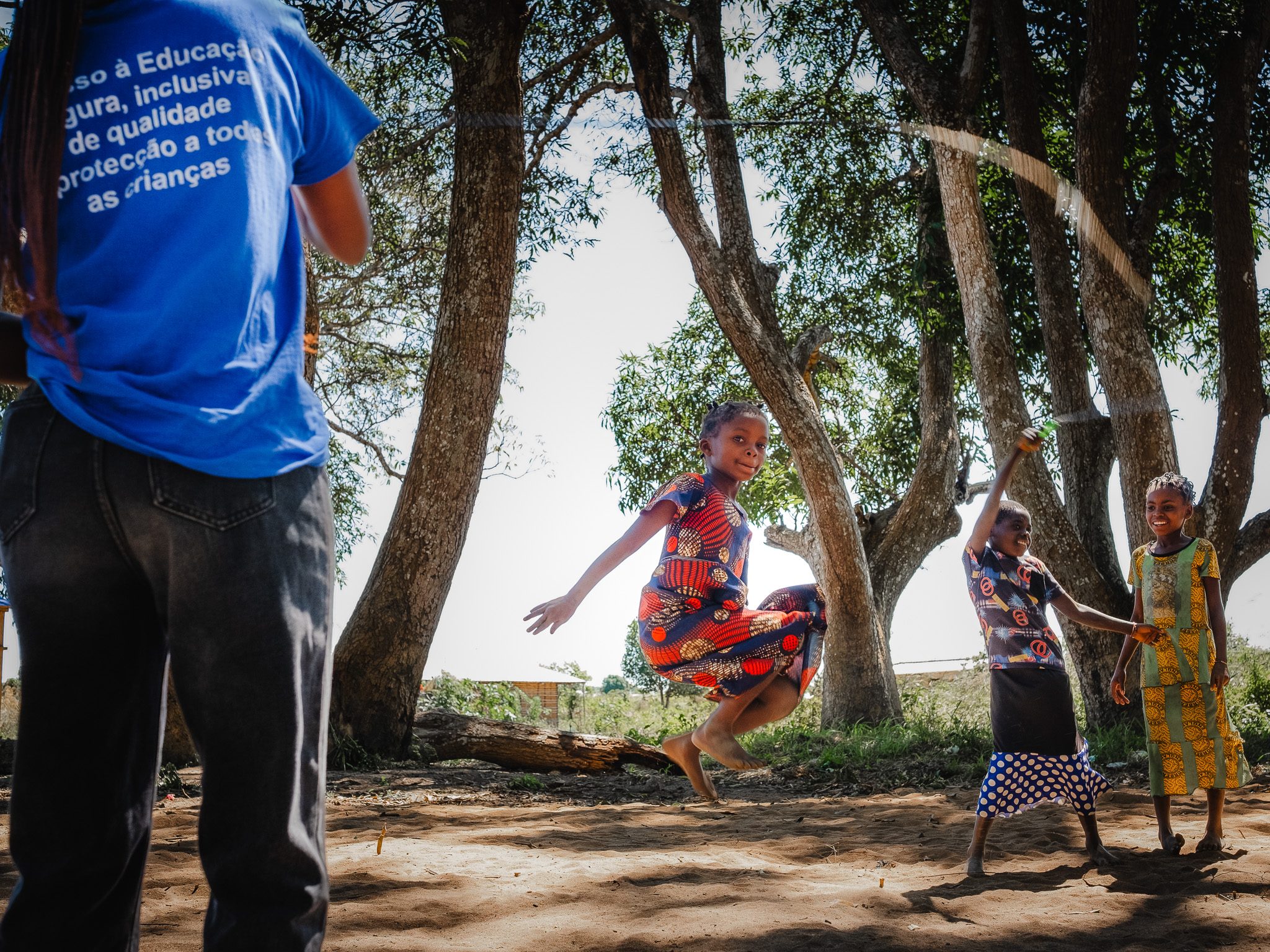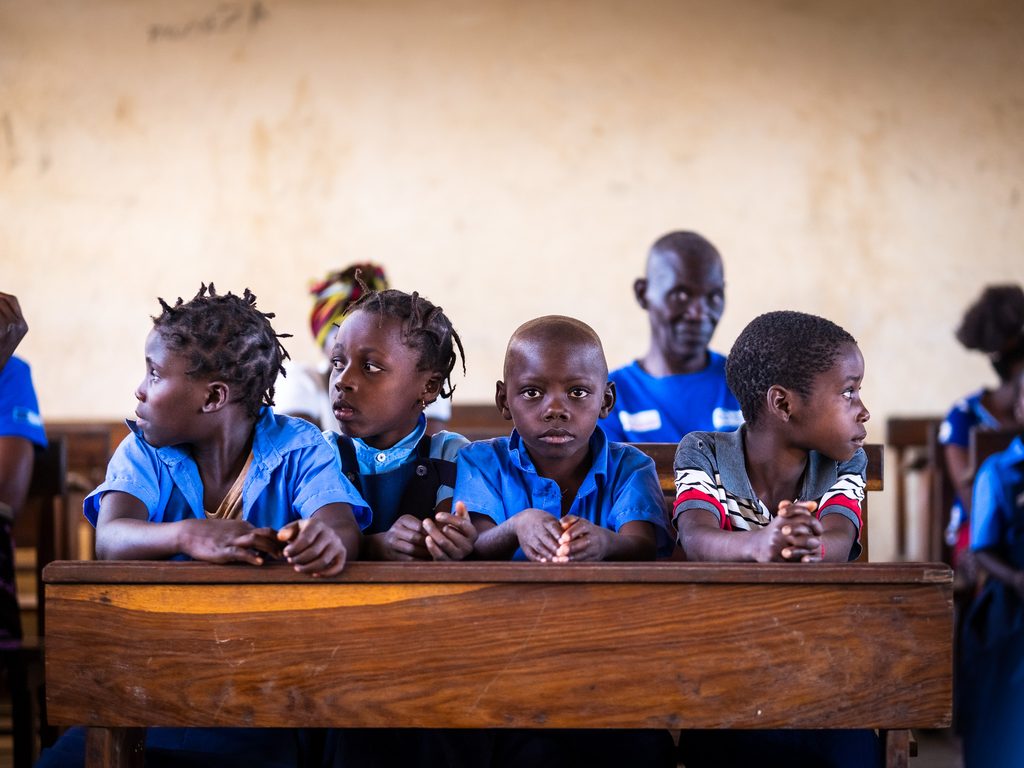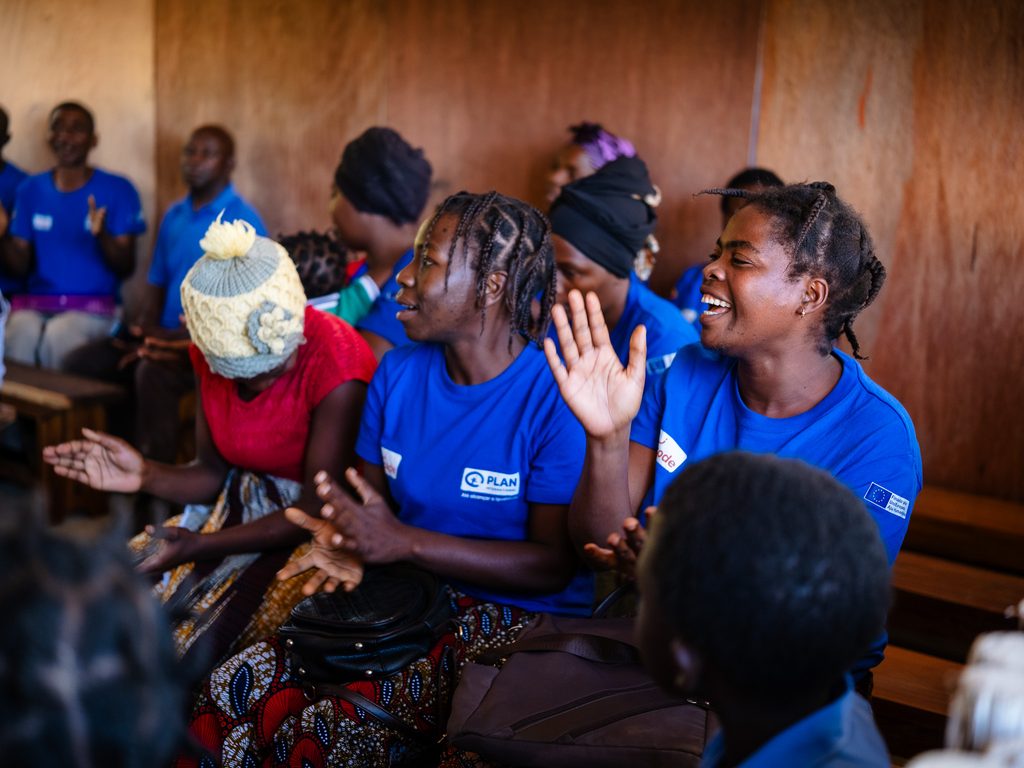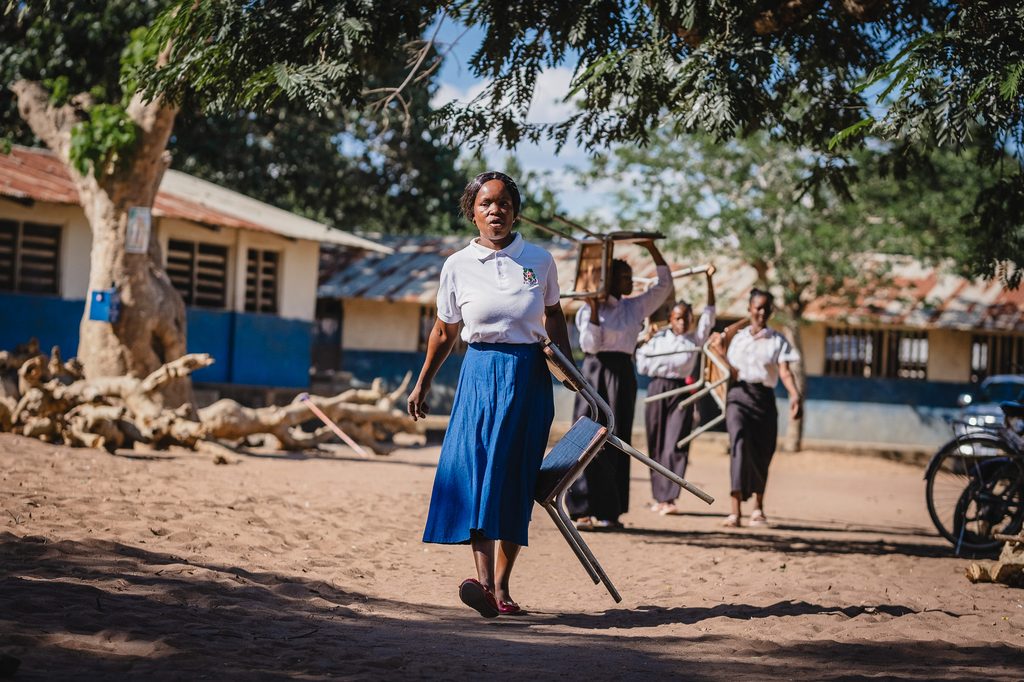The not-so-silent impact of the humanitarian crisis in northern Mozambique
15 July 2024Girls and young women are hit especially hard by the ongoing conflict in northern Mozambique, in a crisis which receives little international attention despite the humanitarian response remaining heavily underfunded.
Enzo Mauro Tabet Cruz, Forced Displacement Policy and Advocacy Advisor at Plan International’s UN Liaison Office in Geneva recently returned from a month deployment in Mozambique, where he heard first-hand from communities affected by the crisis.

‘This used to be one of the only schools in the region, but we haven’t been able to use it since it was burned down by the insurgents three years ago,’ a teacher in Nangade, a remote district in the far north of the Cabo Delgado province told me.
Accounts like this are common across many districts in the north of Mozambique, where conflict has damaged failing local infrastructure. The region has been grappling with a humanitarian crisis for the past 5 years, due to attacks from Non-State Armed Groups (NSAG). These attacks have caused widespread displacement, with 1,028,743 people currently displaced and 2 million needing humanitarian assistance.
Children’s futures impacted

The conflict is already impacting the future of children in the region. Until February 2024, over 200 schools have been inoperable in Cabo Delgado due to the ongoing insurgency and conflict, and many of them are still not operating.
Paired with that, many communities have seen a massive influx of displaced families, most of them with school-aged children, resulting in some schools in the region functioning with an average of eighty to one hundred students per classroom. Even where there are schools, many don’t have sufficient water or basic hygiene infrastructure, nor do they have enough teachers due to the lack of capacity of the government to pay salaries.
In those districts, people have been relying on humanitarian actors like Plan International to build temporary learning structures, which are a short-term solution to ensure the continuation of education but insufficient to cater for the ongoing needs of local and displaced children.
Girls often suffer worst consequences of conflict

Not surprisingly in contexts like this, girls and young women often suffer the worst consequences of the conflict. In particular, the increase in child marriage and early pregnancies has pervasive impacts on girls’ lives. Child marriage deprives young girls of access to education and health services, leading to school dropouts, lower educational attainment, and increased health risks such as maternal and infant mortality.
Talking to social workers and local authorities provides insight into the scale and impact of child, early and forced marriage in communities affected by conflict. Child marriage is not a new issue for Mozambique, a country that grapples with the sixth-highest rate of child marriage in the world. However, conflict in one of the poorest regions of the country has further exacerbated the issue.
Harmful traditional practices increase
On my way back to the airport in Palma, it didn’t take long until I saw a group of around forty girls and young women, some as young as ten years old. ‘These girls are heading to the ‘initiation rites’, where most will finish up married not long after,’ the driver told me. This is just one of the many occasions when girls are subjected to harmful traditional practices, partially due to the economic hardship and instability exacerbated by the conflict.
Despite the immense impact of the crisis on the local population, global attention, and support for a response to this crisis remain very low. Authorities in the region rely heavily on partners to provide essential services to the population, particularly humanitarian actors. In some of the places I visited, Plan is the only actor providing education and safe spaces for children where they can learn and find safety in the dire situation they and their families live in.

The world must pay attention to Mozambique
Amid big crises taking the headlines, the situation in Mozambique is getting little attention worldwide. The current humanitarian response plan remains heavily underfunded, with only 15% covered to this date. With little funding, humanitarians are forced to prioritize the scarce resources to areas with active displacement, leaving some districts with very few essential services such as food, education and protection.
The crisis in northern Mozambique demands bigger global attention. Despite the resilience of the Mozambican people, if the global community doesn’t step up efforts to end the conflict, it will risk having lifetime impacts on children in the region. It’s critical to step up support to humanitarian organisations who provide essential services to the girls and young women of Cabo Delgado – it’s not too late to give girls a future in which they can thrive.


